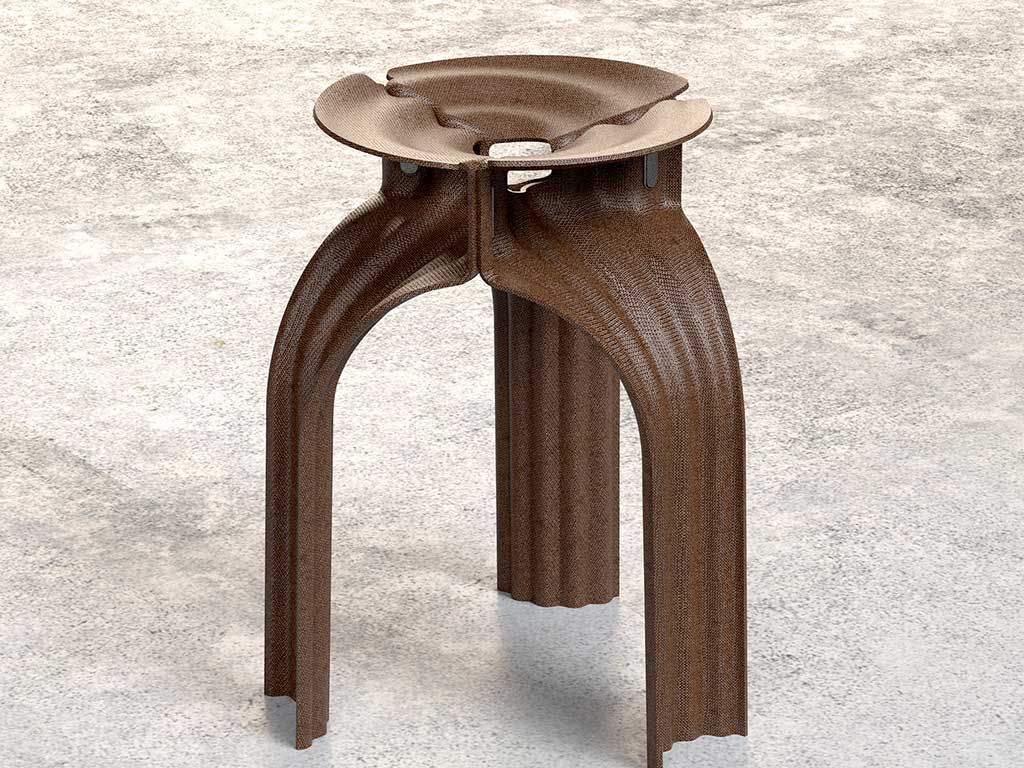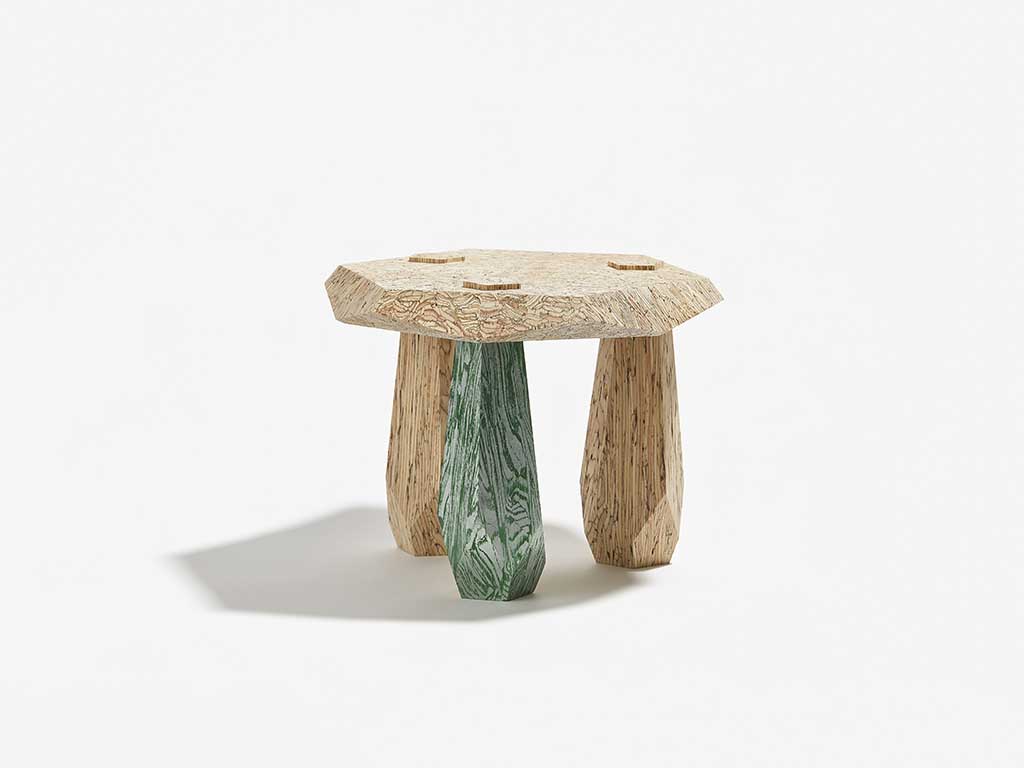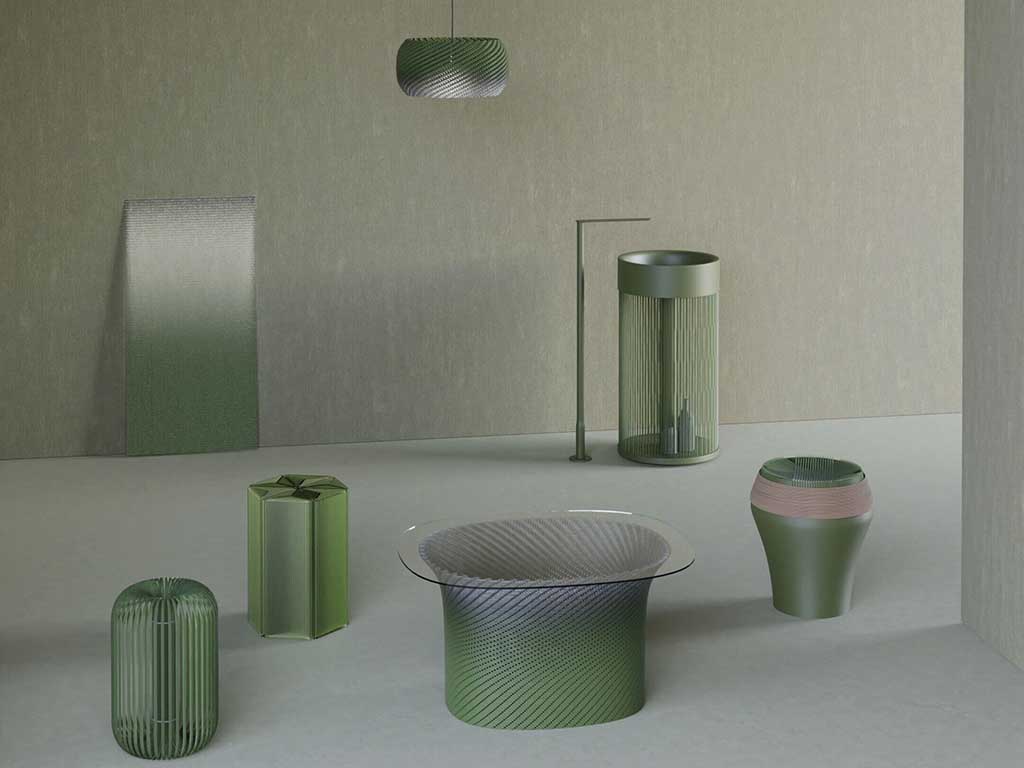The Jury of the SaloneSatellite Award, which met today, 19 April, unanimously chose the six winning projects from among the hundred candidates. In the twelfth edition, the winners were innovation in processes and traditions, in the safeguarding of sustainable and community thinking.
Representatives of different nations of origin or provenance, their projects range across geographical latitudes and design aptitudes. The first prize went to the Japanese Honoka collective for its “Tatami Refab”, which reuses the material used for Tatami in the 3D printing process. The second to Hong Kong-based Studio Ryte for its “Triplex Stool”, which uses a sustainable wood fibre, Flax. The third, to Ahokpe + Chatalin, present at the SaloneSatellite with Belgium is Design, for the “Kudoazò” hammock, which uses recycled fabrics spun in Benin.
The three Special Mentions this year were awarded the Róng Design Award, which offers a one-month residency at the Rong Design Library in the Yuhang district of Hangzhou, China, promoter of the initiative. They are the Argentinean, resident in Spain, Joaquin Ivan Sansone, for his rush stool ‘Junki’; the Korean, Weonrhee, for his coffee table ‘Primitive Structure’; and the Venezuelan, resident in the USA, Fragmentario, for his design ‘Avocado Seed Brick’. All were chosen for their strong sense of research. The three award-winners will be supported in integrating traditional Chinese crafts and materials into their creative process. The aim is to introduce and promote these peculiarities of China in the global design world, while supporting the creativity and growth of young designers.

FIRST PRIZE
Honoka, Japan
(Stand C02)
Tatami Refab
PROJECT DESCRIPTION
The use of Tatami is gradually disappearing. The Tatami Refab Project reintroduces Tatami into modern life using 3D printing.
MOTIVATION
The use of 3D printing and the recovery of poor materials are combined in a versatile project that reintroduces traditional signs and culture into everyday life and domestic spaces in an innovative way.
SECOND PRIZE
Studio Ryte, Hong Kong
(Stand D04)
Triplex Stool
PROJECT DESCRIPTION
From lightness to structural efficiency; from compactness to sustainability. The Triplex Stool in Flax fibre is an experimental piece of furniture that responds to today’s nomadic lifestyle.
MOTIVATION
The adoption of Flax, a sustainable wood fibre, with its lightness introduces a contemporary reinterpretation of the strong Brutalist language.
THIRD PRIZE
Ahokpe + Chatelin (Belgium is Design), Belgium
(D13/E08)
Kudoazò
PROJECT DESCRIPTION
A hanging bed designed and woven in Benin for European interiors. The fabric is made from the discarded yarns of jumpers that end up in African markets, and the shape depends on the material available.
MOTIVATION
Conceived in Belgium and developed in Benin with recycled fabrics, this antique object expresses sustainable thinking implemented in the encounter of traditions and manufactures that break down geographical boundaries and colonialist aspirations.
SPECIAL MENTION
Joaquin Ivan Sansone, Spain
(B01)
Junki
PROJECT DESCRIPTION
From research in the field of materials comes this robust seat, which utilises the minimum combined strength of each element. Demonstrating the resilient power of nature.
MOTIVATION
Simplicity guides the reading of this object, which exploits the intrinsic properties of the material with a viable solution and a pleasing aesthetic. Conveying a message of resilience.

SPECIAL MENTION
Weonrhee, South Korea
(A05)
Primitive Structure
PROJECT DESCRIPTION
In this project, the designer focused on two aspects: the material cycle during the construction process, and the primitive origins of its culture.
MOTIVATION
Culture of origin and contemporary design converge in a process that experiments and reinvents primitive forms by adapting them to new needs.
SPECIAL MENTION
Fragmentary, USA
(D20)
Avocado Seed Brick
PROJECT DESCRIPTION
The brick made from avocado seed and a binder obtained from Sargasso is one of the applications of the designer’s research into the properties and use of avocado seed to balance the shortage of raw materials.
MOTIVATION
The research finds the most diverse applications and expresses a comparison between places and resources in a continuous and fruitful exchange that enriches the project as a whole starting from a simple seed. salonemilano.it










